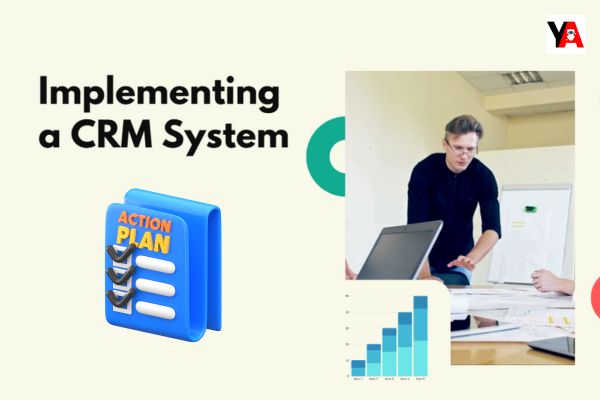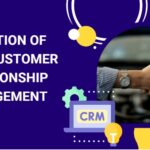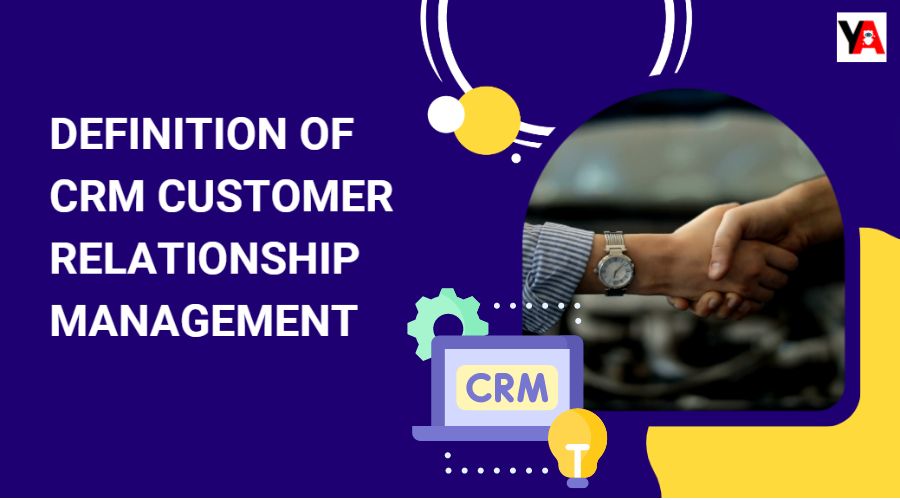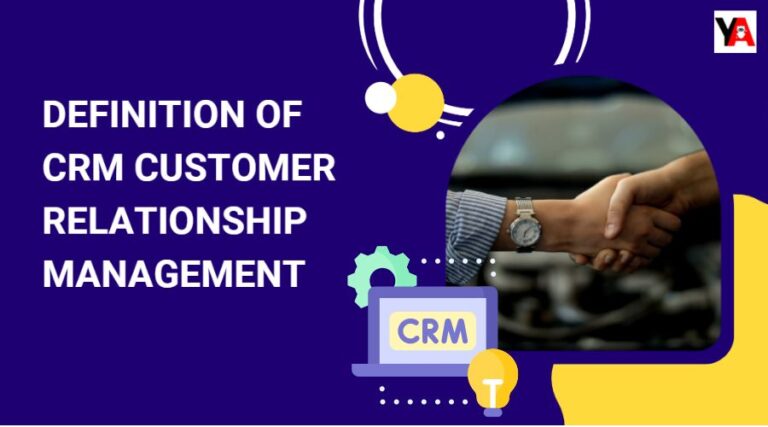Building and sustaining solid client relationships is essential for business success in the cutthroat market of today. Customer Relationship Management (CRM) is a useful tool in this situation.
The article below delves into the definition of CRM Customer Relationship Management, its basics, benefits, and how to implement it effectively.
Table of Contents
ToggleDefinition of CRM Customer Relationship Management
Customer relationship management, or CRM, is a term used by businesses to describe the process of tracking and evaluating customer contacts across the course of their customer lifecycle.
Here the goal is to improve customer relationships and retention to drive growth in sales.
CRM systems rely on different points of contact between the company and the customer for the compilation of customer data.
These points of contact usually include the company’s website, telephone, direct mail, live chat, social media, etc.
As CRM systems manage customer data, the company’s staff can depend on them for the details regarding customers’ purchase history, buying preferences, personal information, etc.
The Basics of CRM
Below we have mentioned and explained the fundamental components of customer relationship management (CRM):
- Customer Data Management: The primary element of CRM is customer data management, which entails gathering, storing, and analyzing customer data. The data includes contact information, purchase records, communication history, etc. In addition, the behavioral data of customers is also collected and analyzed.
- Sales Management: CRM systems help sales teams perform best in sales by streamlining the sales process. Lead tracking and sales pipeline management are made simple with CRM. Additionally, it automates repetitive sales-related duties.
- Marketing Automation: CRM systems of the modern world also feature marketing tools needed to automate the marketing process. Campaign planning, execution, and measurement are aided by these marketing technologies. Moreover, personalized marketing based on customer data becomes possible with these tools.
- Customer Service and Support: An efficient CRM system also provides tools that can help manage customer complaints and inquiries, thus leading to an efficient support system. An efficient support system established with the aid of a CRM system enhances customer satisfaction by ensuring on-time resolutions.
- Integration with Other Systems: A more thorough understanding of company processes is provided by the integration of CRM systems with other business software. It includes applications like enterprise resource planning (ERP) systems, social media networks, email marketing platforms, etc.
Advantages of CRM

This section of the article turns the spotlight on the various benefits of implementing a CRM system. Several such benefits influence the ways businesses operate. Some of the key benefits are as follows:
- Improvement in Customer Relationships: For an optimized customer relationship, an effective and personalized interaction with customers is all you need. And, such efficient interactions call for an enhanced understanding of customer needs, which easily becomes possible with the 360-degree view (of customers) offered by CRM systems.
- Increase in Efficiency: The capacity of CRM to automate regular processes such as data entry, follow-up emails, scheduling, and so on is a key advantage. Automation of tasks saves a lot of valuable time that can be utilized by employees in more important activities, leading to enhanced efficiency and faster growth.
- Better Collaboration: For different departments in an organization to work together seamlessly, all the departments must have access to updated customer information. It happens because a CRM system helps them communicate and work together more effectively.
- Better Data Insights: Another crucial advantage of implementing CRM in a business is its ability to offer customer-related data insights. It includes sophisticated reporting and analytics capabilities. By providing insights into sales patterns, consumer behavior, and campaign effectiveness, these technologies support better decision-making and corporate strategy development.
- Increased Customer Retention: As mentioned even above, CRM helps offer a more personalized experience to customers and improves customer service. This approach leads to enhanced customer loyalty and retention. Happy and satisfied customers not only keep returning and buying repeatedly but also recommend the service to others.
- Increased Sales: Optimized sales & marketing processes and better customer insights with the aid of CRM systems boost sales significantly.
Implementing a CRM System

Careful implementation of a CRM is crucial to ensure that your team makes the most out of it. Below are the key steps to effective implementation:
The very first step is to define the goal that you intend to achieve by implementing a CRM system. Once the goal is clear or you already know what you want to achieve, do research on the CRM options available in the market and choose the one that best suits your budget and meets the desired goals.
An ideal CRM offers implementation support as well. So it’s wise to take expert help rather than burden your internal staff with this complicated task. The next step will be to provide comprehensive training to your staff members so that they can be comfortable in using this newly implemented system.
Next, migrate carefully the existing customer data to this new system. Once the implementation is complete and successful, a continuous review of the performance of the system is the next step. Consider making required adjustments so that the efficiency can be improved.
Final Words - Definition of CRM Customer Relationship Management
The best CRM system can potentially boost sales and enhance customer satisfaction. But the success is possible only if the system is well implemented. That’s why, in the above guide, we have also focused on how to implement it efficiently, in addition to covering the definition of CRM customer relationship management, its basics, and advantages.
Frequently Asked Questions
The management of customer connections is referred to as CRM. It explains the strategies, instruments, and practices that companies employ to monitor and assess customer information and interactions throughout the customer lifetime. CRM aims to enhance customer care interactions, support client retention, and stimulate sales growth.
For instance: One well-known CRM platform is Salesforce. It enables companies to automate marketing campaigns, handle sales leads, and keep track of client interactions.
Operational CRM: aims to enhance and automate front-office and customer-facing procedures. It consists of automation for marketing, sales force, and services.
Analytical CRM: Examines client information gathered from multiple sources to assist in improving business choices. Predictive modeling, pattern recognition, and data mining are all involved.
Collaborative CRM: CRM that fosters collaboration and communication between a business and its clients is known as collaborative CRM. In order to enhance customer service, information must be shared throughout various business units, including the support, sales, and marketing departments.
- Leads, opportunities, and sales activity are tracked and managed by sales management.
- Marketing automation: Organizes advertising campaigns, monitors their effectiveness, and tailors messages.
- In order to increase customer satisfaction, customer service and support handles complaints, questions from customers, and support tickets.
- Customer analytics: Provides decision-makers with insights into the behavior and preferences of their customers through the analysis of customer data.
- Workflow automation reduces human error and increases efficiency by automating repetitive jobs and procedures.
Customer data management is the process of gathering, keeping, and overseeing customer data to make sure it is correct and easily available.
- Customer Interaction Management: Managing interactions with customers across various channels (e.g., phone, email, social media) to provide a consistent and personalized experience.
- Sales Automation: Automating sales processes to increase efficiency, manage sales pipelines, and improve forecasting.
- Marketing Automation: Automating marketing tasks such as campaign management, email marketing, and lead generation to improve targeting and effectiveness.


















